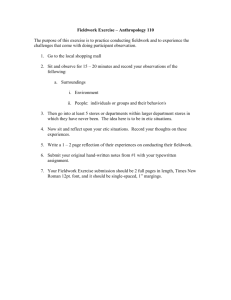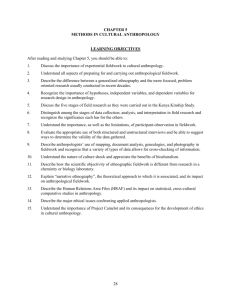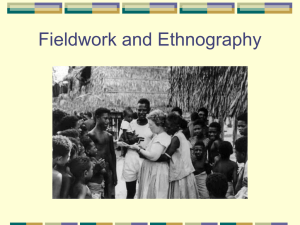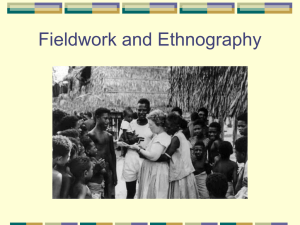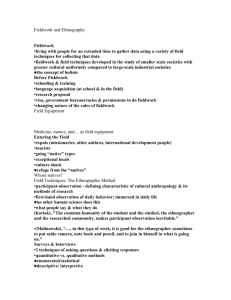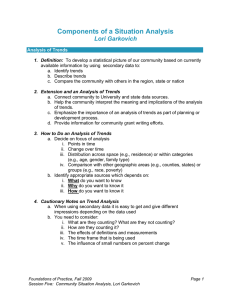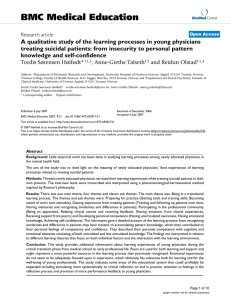Ethnographic Fieldwork
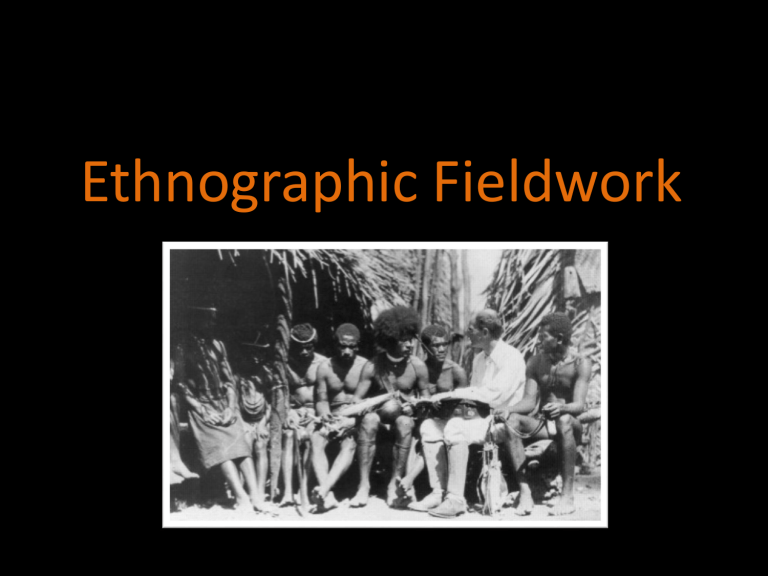
Ethnographic Fieldwork
Fieldwork
Data Collection
• Participant-Observation
• Interviewing
• Census Taking
• Mapping
• Document Analysis
• Collecting Genealogies
• Photography
Quantitative data
• Quantitative data:
Statistical or measurable information, such as demographic composition, the types and quantities of crops grown, or the ratio of spouses born and raised within or outside the community.
Qualitative data
• Qualitative data:
Non-statistical information such as personal life stories and customary beliefs and practices.
Participant-observation
• Observe and also participate in routine activities in a community over extended period of time
Key Informants/Consultants
• A member of the society being studied, who provides information that helps researchers understand the meaning of what they observe
Eating Christmas in the Kalahari
• Richard Lee
• !Kung San of the Kalahari desert
Interviews
• Unstructured interviews
– Interviewer asks open-ended questions
– interviewees to respond at their own pace in their own words
• Structured interviews:
– the interviewer asks all informants the same questions, in the same sequence, and under the same set of conditions
Some Common Challenges with Doing
Fieldwork
• Language barrier
• Gender bias
• Informants not representative
• Culture shock
Not a Real Fish:
The Ethnographer as Inside Outsider
Not a Real Fish:
The Ethnographer as Inside Outsider
• Roger Keesing
• Kwaio of the
Solomon Islands
Anthropology at Home
Ethics
Anthropologists have obligations to….
• The people under study
• The local communities
• The host governments and their own government
• Other members of the scholarly community
• Organizations that sponsor research
• Their own students
Video: Doing Anthropology



